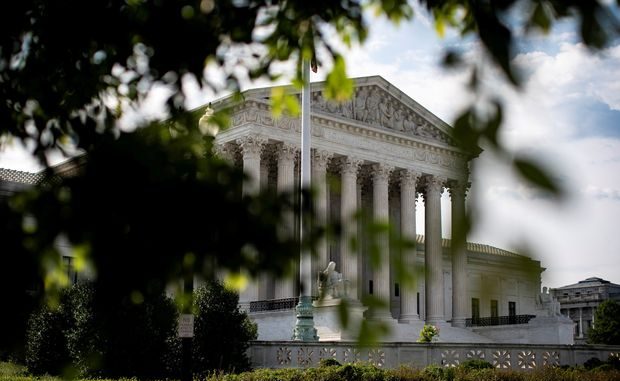
The Supreme Court on Monday dealt a surprising setback to abortion opponents, striking down a Louisiana law that was expected to result in the closing of all but one of its abortion providers.
The justices, by a 5-4 vote, said the requirement that doctors have admitting privileges at a nearby hospital violated a woman’s right to abortion. Chief Justice John G. Roberts Jr. joined with liberals in supporting the outcome.
This was the court’s first abortion ruling since President Trump’s two appointees took their seats, and it was seen as an early test of whether a more conservative court would move to repeal Roe vs. Wade.
Four years ago, the court struck down a nearly identical Texas law on the grounds that it put a heavy burden on women seeking abortions because it had the effect of closing more than half of the state’s clinics that provided abortions. Women who lived outside the state’s major cities would be forced to travel hundreds of miles to find an open clinic. By a 5-3 vote, the court said the burdens of the state’s restrictions greatly outweighed the claimed benefits to health.
Justice Anthony M. Kennedy cast a key vote then to form the majority. But he retired in 2018 and was replaced by the more conservative Justice Brett M. Kavanaugh.
The Louisiana case was seen as a rerun of the Texas case, but with a changed Supreme Court. At issue was whether the justices would adhere to their precedent or cast it aside on the grounds that it interfered with the state’s authority to regulate abortion.
Roberts cited precedent as his reason for rejecting the law.
“The legal doctrine of stare decisis requires us, absent special circumstances, to treat like cases alike. The Louisiana law imposes a burden on access to abortion just as severe as that imposed by the Texas law, for the same reasons. Therefore Louisiana’s law cannot stand under our precedent,” he said.
Roberts had dissented in the Texas case, voting to uphold the law. But he says he switched his position to honor the precedent.
The chief justice’s decision to stand by the court’s abortion precedent looks to be an extraordinary setback for conservatives who believed the court, with President Trump’s two appointees, was ready to overturn Roe vs. Wade. His opinion on Monday suggests he would uphold some further regulations, but not those that greatly hamper women.
In a 16-page separate concurring opinion, Roberts said he did not agree that the court should balance the health costs and benefits of each abortion regulation. This was the approach taken by Justice Stephen Breyer four years ago in the Texas case and reasserted in an opinion Monday by Breyer and joined by the three other liberal justices. However, Roberts said he would abide by the court’s 1992 ruling, which said the states may not put a “substantial obstacle” in front of women seeking abortions.
Last year, four members of the court — Justices Clarence Thomas, Samuel A. Alito Jr., Neil M. Gorsuch and Kavanaugh — voted to allow the Louisiana law to take effect once it had been upheld by the 5th Circuit Court in New Orleans. But Roberts joined with the four liberals to put the law on hold while the constitutionality of the law was reviewed.
The court heard arguments in March in the Louisiana clinic case fully aware that a dozen states have enacted limited or total bans on abortion. All those laws are on hold.
Lawyers for Louisiana defended the admitting privileges rule as a health and safety measure. They said it would help assure that only competent and trusted physicians were performing abortions and that their patients could be quickly transferred to a hospital in an emergency.
Abortion rights lawyers called the rule a sham and a deceptive scheme designed to shut down already embattled abortion clinics. They said that because early abortions are very safe, patients rarely are sent to a hospital. Typically, hospitals extend admitting privileges to doctors who regularly send patients there. And because abortion remains controversial, many hospitals, and especially in small towns and rural areas, are wary of having an affiliation with a doctor who performs abortions.
During the March argument, they told the justices that if the Louisiana law were upheld and the clinic in Shreveport closed, pregnant women could be forced to travel several hundred miles to New Orleans to see a doctor who provides an abortion. The case was June Medical Services vs. Russo.
*story by The Los Angeles Times